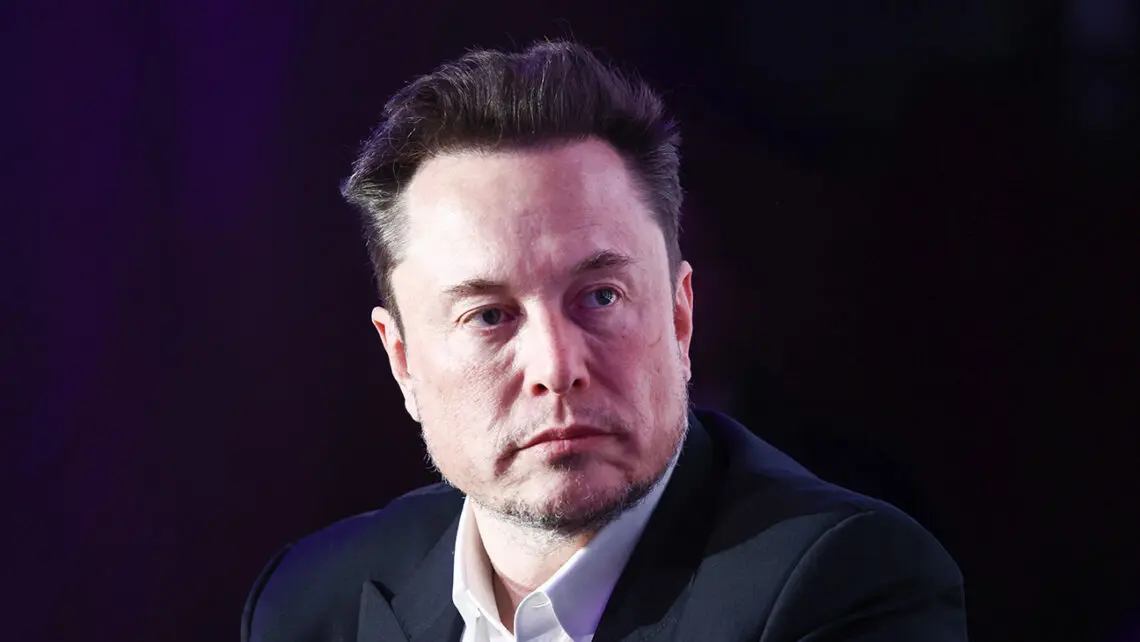German political leaders across the mainstream have strongly condemned Elon Musk for his op-ed piece in German newspaper Die Welt am Sonntag in which he endorsed the far-right Alternative for Germany (AfD) party ahead of Germany’s Feb. 23 federal elections.
Friedrich Merz, the chancellor candidate for the conservative CDU party, called Musk’s intervention “overreaching and presumptuous,” describing it as an unprecedented interference in Germany’s democracy. “I cannot recall a comparable case of interference in the election campaign of a friendly country in the history of Western democracies,” Merz told the Funke Media Group.
Lars Klingbeil, co-chair of the Social Democratic Party (SPD), drew parallels between Musk’s actions and those of Russian President Vladimir Putin. “Elon Musk is attempting nothing different than Vladimir Putin,” Klingbeil stated. “Both want to influence our elections and deliberately support the AfD’s enemies of democracy. They want Germany to be weakened and plunge into chaos.”
In his controversial op-ed, Musk claimed that Germany stands “on the brink of economic and cultural collapse” and portrayed the AfD, Germany’s most extreme right-wing political party, as the country’s sole hope for recovery. The essay expanded on Musk’s AfD-friendly posts on his social media platform, X, including one last week where he claimed “only the AfD can save Germany.”
The commentary piece in German was launched online on Saturday and published on Sunday in Die Welt am Sonntag, the flagship paper of the Axel Springer media group, the company that also owns U.S. political news site Politico.
Shortly after the piece was published online, Eva Marie Kogel, the editor of Die Welt‘s opinion section, posted on X that she had submitted her resignation over the article. “I always enjoyed heading the opinion department at Welt and Wams. Today a text by Elon Musk appeared in Welt am Sonntag. Yesterday I submitted my resignation after printing,” she posted.
Germany’s domestic intelligence agency has classified the AfD at the national level as a suspected extremism case since 2021. Regional branches of the party in the states of Saxony and Thuringia are designated as confirmed right-wing extremist groups. Despite this, the party is currently polling second nationwide ahead of the February elections. Germany’s proportional representation system means no single party is likely to secure enough votes to form a government on their own. All the other parties in the German parliament have said they will not govern together with the AfD.
Die Welt editor Jan Philipp Burgard published an opinion article alongside Musk’s, under the title: “Why Elon Musk is betting on the AfD – and why he is wrong” in which Burgard praised the Tesla founder as “the greatest entrepreneurial genius of our time” and broadly agreed with his critique of Germany, but noted that “the AfD is partly xenophobic and anti-Semitic. That is why it is a danger to Germany.” Burgard also pointed to AfD’s official policy to take Germany out of the European Union, something he argued would be economically disastrous for Germany, which is a major exporter nation.
SPD co-chair Saskia Esken criticized both Musk and the newspaper’s decision to publish the piece. “Our democracy is resilient and not for sale,” Esken told Reuters. She characterized Musk’s intervention as part of a broader pattern of attempted external influence on German democracy, whether “state-organized from Russia or through the concentrated money and media power of Elon Musk and his billionaire friends.”
The controversy comes amid fresh revelations about the AfD’s extremist connections. Investigative outlet Correctiv recently reported on a meeting in Switzerland attended by AfD representatives, members of the banned neo-Nazi network “Blood & Honour,” and others, where topics such as revoking citizenship from naturalized Germans and privatizing deportations were allegedly discussed. Correctiv broke a similar story in January about a secret meeting between members of the AfD, neo-Nazis, and sympathetic German business leaders in which they discussed the forced deportations of millions of people currently living in Germany, including those with German citizenship.
SPD General Secretary Matthias Miersch condemned Die Welt‘s decision to provide Musk with “an official platform to campaign for the AfD,” calling it “shameful and dangerous.” Green Party deputy parliamentary group leader Konstantin von Notz criticized the newspaper for being “historically oblivious” in offering a platform to “a Western oligarch like Musk to advertise for these enemies of democracy.”
The incident has sparked renewed calls for stricter regulation of social media platforms. Klingbeil urged for more aggressive measures to limit the influence of major internet platforms like Musk’s X, emphasizing the need for EU-wide legal instruments against disinformation and the concentration of power in the hands of tech billionaires.
Musk’s messing with German politics comes five years after the launch of his Tesla factory in Brandenburg outside Berlin. The project was fast-tracked and built at record speed. Today it employs some 12,500 workers and produces 5,000 vehicles weekly. However, early tensions emerged over environmental concerns, particularly regarding water usage in the drought-prone region. Musk publicly dismissed these worries, but environmental groups successfully pressured Tesla to reduce its water consumption. Musk justified his op-ed piece by arguing as someone who has made a “significant investment in the German industry and technology landscape” he had the right to speak about Germany’s political direction.

 Italian
Italian







